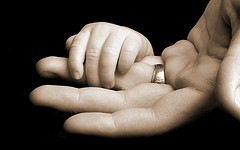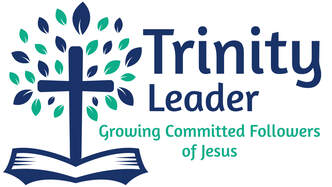 If you follow the news you may have heard of the 'radical' shift the Catholic Church is proposing in how it defines marriage and family relations. The sensationalized story that mainstream media has produced would have you believe that the Catholic Church is eliminating restrictions on participation within the church for cohabiting couples, divorcees, and individuals in committed homosexual relationships. One could even stretch their interpretation of the Report on Family (full text here) to read it as affirming these relationships as the norm--the Church is finally going to throw open its doors to some enlightened thinking. In fact, the Report on Family does show a great deal of enlightened thinking, although it is not particularly ground breaking in its proposals. The central theme of this document is about acknowledging the reality of societal pressures on family relationships; it seeks to affirm the positive, life-giving elements found in cohabitation, civil marriage, divorce, and committed homosexual relationships while acknowledging these are not ideals. This report is a positive step toward recognizing the brokenness within family relationships while also looking for moments of redemption in which to speak words of grace. In short, it is an exhortation to pastoral sensitivity in dealing with painful and divisive issues whereas in the past, the church sought a one size fits all approach to dealing with family issues. The church needs to major in the art of accompaniment as individuals walk with each other pointing out sin but importantly also proclaiming grace. As I said previously, this is not a new theological framework. It is in fact the very thing Jesus modeled. When dealing with sin, Jesus affirms the ideal laid out by God but always speaks words of grace into the life of the broken person (people). Perhaps the clearest example of this comes in Matthew 19 where Jesus teaches on divorce. He affirms God's desire for family from Genesis 1 & 2 but then acknowledges divorce as a reality because of hardness of heart. The church needs to major in the art of accompaniment as individuals walk with each other pointing out sin but importantly also proclaiming grace. This pastoral sensitivity needs to be applied to all areas of life, balancing law which lays out God's standards/ideals for life while also speaking Gospel in the midst of brokenness. It is like dealing with my children. I do not expect them to get everything right, they will try and not be able to do somethings, they will rebel and choose to disobey me for which there are consequences but there are also opportunities to instruct, encourage, and show compassion. There are redemptive moments in the midst of struggling, suffering, and hurt. The church is full of broken people whose lives are in varying degrees of mess. We need to walk with one another humbly, supporting each other, mourning, hurting, and rejoicing together. As we do so with authenticity and openness, there will be moments where the Gospel can be shared. In the midst of all of our brokenness, we each need to hear the life-giving message of the Gospel set against the ideal which the church is called to model as a Christ's body on earth. So, this document is not groundbreaking in the ways that mainstream media has portrayed and yet it is groundbreaking because it admits the church's failures in seeking redemption in society. It is groundbreaking in the very fact that it calls the church toward God's redemptive heart in announcing the life changing message of forgiveness, reconciliation, and love of Jesus. Photo: https://www.flickr.com/photos/53558245@N02/4979010754/in/photostream/ Not changed. Used under creative commons license: https://creativecommons.org/licenses/by/2.0/
0 Comments
Leave a Reply. |
AuthorPastor J-M shares some occasional thoughts and musings on our life together as followers of Christ. The views are his own. Archives
October 2023
Categories
All
|
- Home
- About
-
Learning & Growing
-
Sermons
>
- 1 Samuel
- Lent
- Spiritual Conversation
- Advent
- 1 Timothy
- Single Messages
-
Older Sermons
>
- Judges
- Joshua
- Galatians
- Lamentations
- 1 Peter: Living Hope
- Acts
- What Does This Mean?
- Gospel Identity: Gospel Living
- Nehemiah
- Questions of Faith
- Proverbs
- Hebrews
- Sermon on the Mount
- 1 Thessalonians
- Psalm 23: Walking with the Lord
- I Believe: The Apostles' Creed and a Living Faith
- 1 Corinthians
- Difficult Questions
- Genesis: God's Endless Faithfulness
- The Lord's Prayer
- Mark
- Genesis
- Bible Studies >
- Kids
- Blog
-
Sermons
>
- Worship Videos & Resources
- Contact
- Home
- About
-
Learning & Growing
-
Sermons
>
- 1 Samuel
- Lent
- Spiritual Conversation
- Advent
- 1 Timothy
- Single Messages
-
Older Sermons
>
- Judges
- Joshua
- Galatians
- Lamentations
- 1 Peter: Living Hope
- Acts
- What Does This Mean?
- Gospel Identity: Gospel Living
- Nehemiah
- Questions of Faith
- Proverbs
- Hebrews
- Sermon on the Mount
- 1 Thessalonians
- Psalm 23: Walking with the Lord
- I Believe: The Apostles' Creed and a Living Faith
- 1 Corinthians
- Difficult Questions
- Genesis: God's Endless Faithfulness
- The Lord's Prayer
- Mark
- Genesis
- Bible Studies >
- Kids
- Blog
-
Sermons
>
- Worship Videos & Resources
- Contact

 RSS Feed
RSS Feed